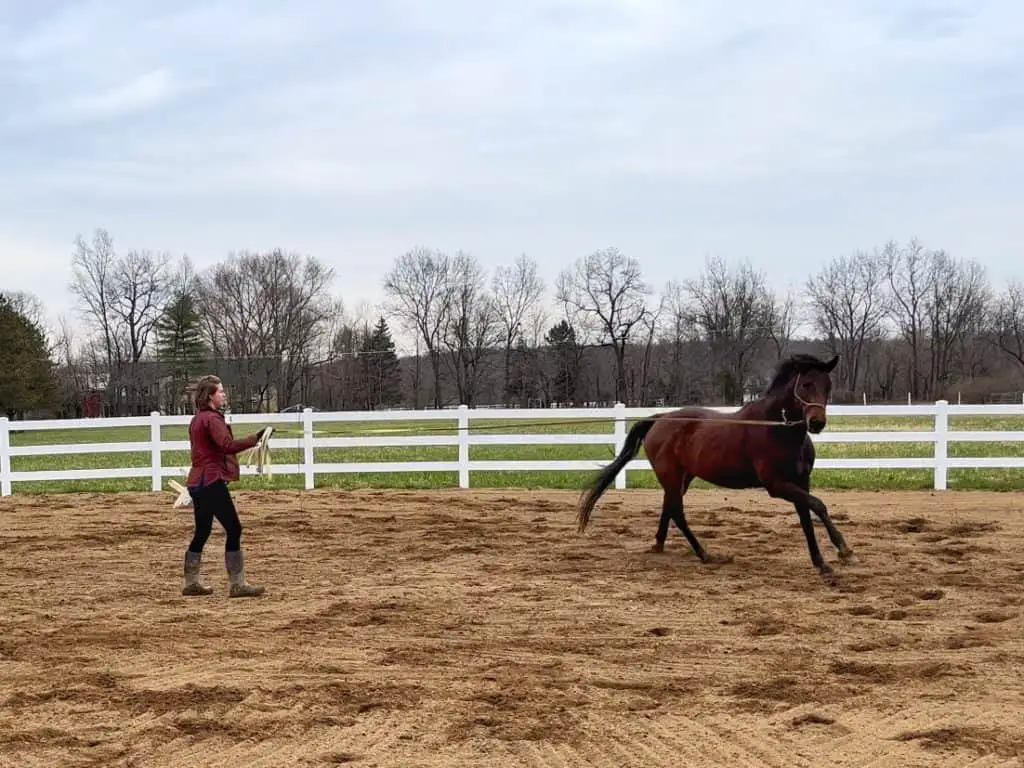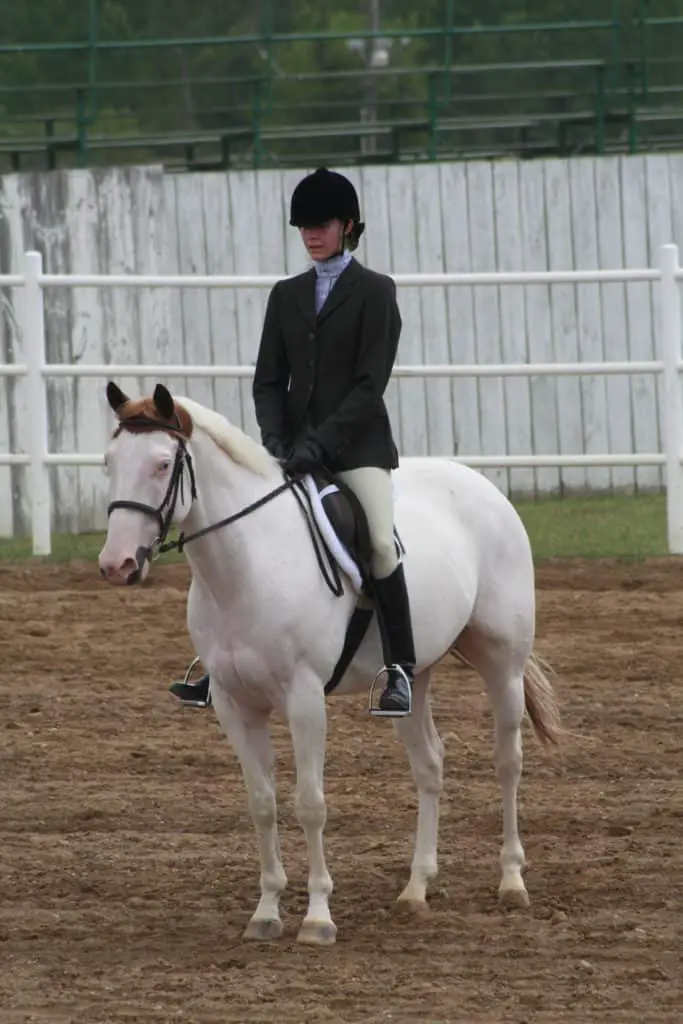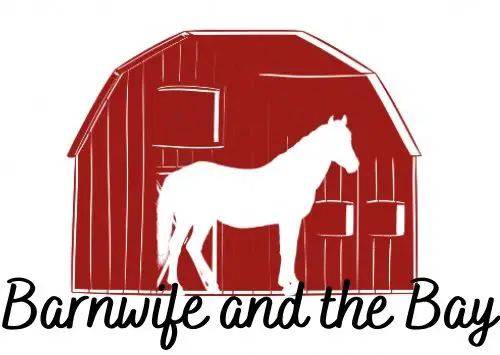
Training your own horse as an amateur is hard. Not just from a technical and skills perspective, but also from a mental and emotional perspective. I must be a glutton for this kind of punishment, because every time I’ve owned a horse I’ve trained it myself, starting at age 10 with very little preparation.
Training my first horse
I trained my own horse at first because that was the option my parents gave me: “train your own or don’t ride”. “If you want to get on a horse’s back, figure out how to get this one to let you on his back.” So I did that. As a ten-year-old, I didn’t know how to seek out resources to teach me, so I used what I was given: a few books and occasional adult helpers, some of whom did more harm than good by their own lack of understanding and skills.
Whatever measure of success I achieved with my childhood horse was due to the shear amount of work I put in. The main thing I learned from my years with him was that even if you don’t really know what you’re doing, if you do 3 things – 1) work with your horse consistently, hours and hours each week 2) are kind to your horse 3) you have a basically good-natured and willing horse – you’re going to come out with a good outcome in a few years. Of course at the time I didn’t know I was learning that.
All I reflected on then was the results each year at the 4H show and the feelings they produced. It felt really good to get a ribbon, and really bad to be the one in the ring wondering what was going to happen. Whether you were going to get the right lead; if your horse was going to throw his head up and rush in the trot; if other riders felt afraid to be near you on the rail. There was a discouraging feeling that everyone’s horse was on autopilot but mine. Because the latter feelings happened more often than the ribbon-winning feelings, I didn’t much like being the one that trained my own horse. I was often embarrassed.

Me at 17 showing my first horse, Buckeye, in hunter under saddle. I absolutely oozed lack of confidence.
Photo cred: Tatjana Jones
Training my own horse as an adult
As an adult, I train my own horse for financial reasons. My financial priorities lie elsewhere than being able to afford a trained horse or a professional horse trainer. Now, as then, I have a complicated relationship with training my own horse. Being a part of creating a responsive, trustworthy athlete that’s good at its job is a special privilege like nothing else. Now that I’m on the other side of having done it once, I’m not sure I would give up that privilege even if you offered to give me a trained dressage horse. But along the way there are many, many moments of frustration, fatigue, and at least for me, Imposter Syndrome. The impulse to hide what I’m doing for fear someone will find out that I’m not qualified to be doing it.
Related: How I Pay For My Horse

Me now, doing ground work with The Bay.
One of the things I’ve learned in the years in between horses is “The process often doesn’t look like the product.”
The learning mindset
Not that I don’t have confidence in my ability to train The Bay. I do, up to a certain level. And now, I am also confident in my ability to seek out excellent help in the form of instructors, and my ability to know when I need the help of a professional. Additionally, excellent help is now always available online, for the discerning. I am so grateful to all the talented professionals who go online to give us so much of their wisdom and advice on training horses (much more than it seems like they should at times), for free.
Still, I’ve always hated being the inexperienced person, the learner. The feeling that most others near me know more than me or have greater skills or success than me. I would much rather feel comfortable as an expert, a mentor, one of the best. But as long as I’m an amateur training my own horse, I’ll always be a learner. Actually, I think the best are often characterized by curiosity. A willingness to let problems make them curious instead of frustrated. The best are not the best because of lack of challenges. They are the best because of the way they approach challenges, learning, and failure. Challenges drive them to find out why the thing is happening, motivate them to play around with solutions.
Banishing Imposter Syndrome
I think maybe the way to banish Imposter Syndrome is to admit challenges, inexperience, and frustrations. Then seek answers and try something. If it doesn’t work, try something else and listen to the horse for the right answer. Admitting challenges and inexperience can be hard, but until we admit we don’t know something, we can never get on the path to figuring it out. And importantly, just because you’re inexperienced in something, does not mean you’re doing it wrong! So I’ll go ahead and say, I am inexperienced with training horses, and am training my own 4 year old thoroughbred, by myself.
So far, it’s going great! We are moving slowly and thoughtfully, and have not had any challenges or problems yet. When we do, I’ll let you know, and I’ll try to remember to approach them with curiosity and creativity. To relax and remember that I’m working hard, being kind to my horse, and have a willing and eager-to-please horse, so we’re bound to succeed sometime.
Like this article? Ready for more? Jump into these too!
